Delis occupy a special niche within Western culinary culture. Whether it be Dallmayr, the world’s first delicatessen that sold tropical fruits to Germans in the 17th century, or the Jewish variety that brought an array of new continental delights to the US in the 20th century, delis have delighted customers with tastes of far-flung places, and usually at a higher-than-average price. It’s not surprising, then, that Take Five (五方食藏), one of a handful of Taipei delis, sits tucked away in a dainty lane between National Taiwan Normal University and Daan Forest Park, catering to a well-heeled clientele of tourists and local residents.
But those looking for a New York-style deli will probably be disappointed with Take Five, as it is more a cafe serving a variety of pastas, organic salads and quiche, than delicatessen offering up pastrami on rye with a pickle on the side.
Display shelves stock imported truffle pates and pickled olives alongside giant jars of homemade “stewed tofu” (豆腐滷) — the fermented tofu paste kept on the inside door of home fridges around the nation. The chilled section boasts a selection of vegetable soups including corn, pumpkin, mushroom and cauliflower whole chorizo sausage and cheeses alongside local boutique beer.
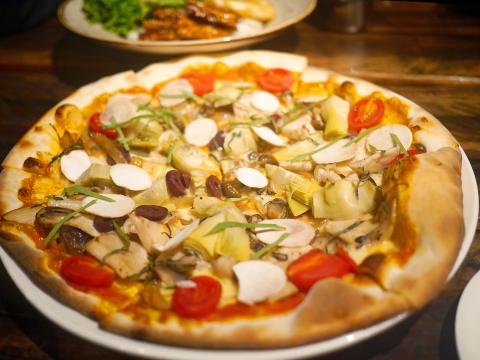
Photo: Liam Gibson, Taipei Times
Take Five has several varieties of quiche and I chose asparagus (NT$150). The lightly-grilled vegetable lies atop the pastry, its slight chewiness contrasting well with the mushiness of the mushrooms inside. The quiche is well-proportioned, from the balance of egg filling to vegetables to the moisture level, retaining a satisfying amount of flavorsome juices. The delectable crunch of the delicate, flaky crust made it all the more scrumptious.
In addition to classic cafe staples, there are hidden surprises such as the minestrone (NT$280), which comes with a beef paddy plonked right in the thick of the soup. The experimentation doesn’t stop there. The tomato broth is suffused with an appealing tikka masala spice mixture. The interesting flavor and texture combinations served as a great topic of conversation.
The mushroom soup (NT$180) was a little disappointing. I typically prefer a hearty and thick mushroom soup but Take Five’s rendition was light and oily. It’s a small portion, so order that side of bread (NT$100), several slices of a walnut and focaccia-style loaf that lack chewiness but work for dipping purposes.
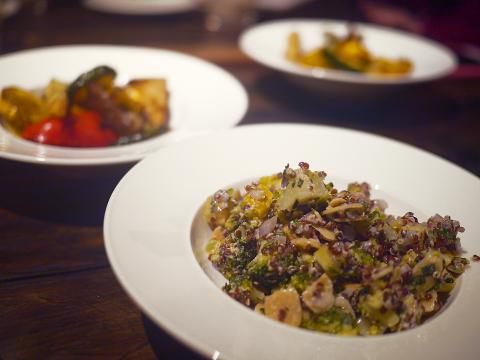
Photo: Liam Gibson, Taipei Times
Low-calorie quinoa salad (NT$120) is refreshing, light and balanced, the ingredients finely chopped so that each bite contains all elements. Almond, broccoli, baby corn, onion, tomato and quinoa, are all whirled together with a light yoghurt dressing — yum.
The deli’s lasagna was disappointing. Although the pasta dish can be challenging to perfect, the veggie lasagna at Take Five was simply a beef lasagna without the mince. There were no other vegetables, just cheese and tomato. To add to the disappointment, the top layer had none of the drool-inducing bubbly, melty, brown-spotted cheese that rouse up childhood memories of sibling battles for who gets the biggest piece. Don’t go for the biggest piece here — the lasagna is priced at NT$1 per gram, and is just not worth it.
Tempeh (NT$280), an Indonesian tofu-like dish sauteed in teriyaki sauce, arrived on a bed of rice topped with a poached egg and lettuce. It had just enough novel value to have you forget that this was basically an upmarket lunchbox meal served on a nice designer plate.
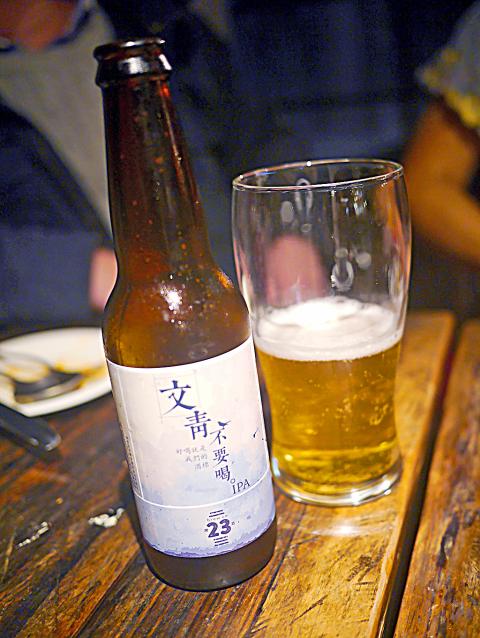
Photo: Liam Gibson, Taipei Times
Take Five’s artichoke pizza (NT$340) stood out for the sheer amount of artichokes added to it. Every thin, crispy slice had a few chunks of the edible flower, ever-so lightly grilled, retaining the natural juices that give off its subtle, unique flavor. The other toppings were simple — Thai basil, olives, baby tomato and oyster mushroom, allowing the artichoke to take center stage. A well-rounded pizza, though purists might balk at the use of Thai basil.
Take Five is a far cry from a classic Western-style deli, but if foods from far-flung places are the criteria, it’s worthy of the name. They stock hard-to-find foods and, to their credit, they’re not afraid to try new things with this wide-array of ingredients. If you can leave your sentimental attachments for your hometown deli at the door, you probably will enjoy it.
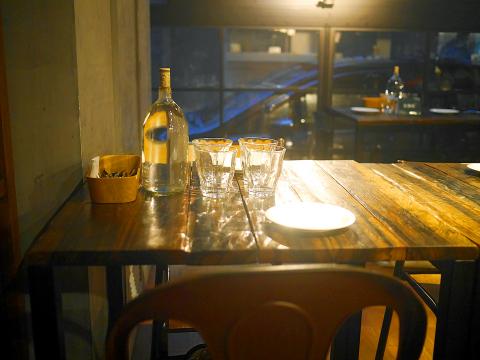
Photo: Liam Gibson, Taipei Times
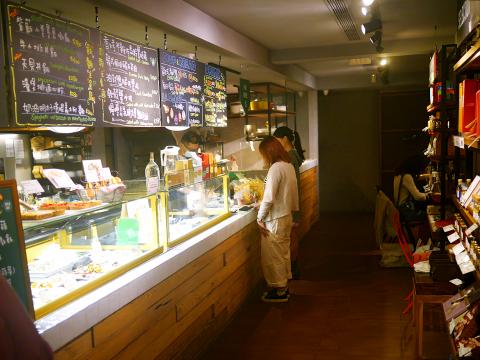
Photo: Liam Gibson, Taipei Times

The unexpected collapse of the recall campaigns is being viewed through many lenses, most of them skewed and self-absorbed. The international media unsurprisingly focuses on what they perceive as the message that Taiwanese voters were sending in the failure of the mass recall, especially to China, the US and to friendly Western nations. This made some sense prior to early last month. One of the main arguments used by recall campaigners for recalling Chinese Nationalist Party (KMT) lawmakers was that they were too pro-China, and by extension not to be trusted with defending the nation. Also by extension, that argument could be

Aug. 4 to Aug. 10 When Coca-Cola finally pushed its way into Taiwan’s market in 1968, it allegedly vowed to wipe out its major domestic rival Hey Song within five years. But Hey Song, which began as a manual operation in a family cow shed in 1925, had proven its resilience, surviving numerous setbacks — including the loss of autonomy and nearly all its assets due to the Japanese colonial government’s wartime economic policy. By the 1960s, Hey Song had risen to the top of Taiwan’s beverage industry. This success was driven not only by president Chang Wen-chi’s

Last week, on the heels of the recall election that turned out so badly for Taiwan, came the news that US President Donald Trump had blocked the transit of President William Lai (賴清德) through the US on his way to Latin America. A few days later the international media reported that in June a scheduled visit by Minister of National Defense Wellington Koo (顧立雄) for high level meetings was canceled by the US after China’s President Xi Jinping (習近平) asked Trump to curb US engagement with Taiwan during a June phone call. The cancellation of Lai’s transit was a gaudy

The centuries-old fiery Chinese spirit baijiu (白酒), long associated with business dinners, is being reshaped to appeal to younger generations as its makers adapt to changing times. Mostly distilled from sorghum, the clear but pungent liquor contains as much as 60 percent alcohol. It’s the usual choice for toasts of gan bei (乾杯), the Chinese expression for bottoms up, and raucous drinking games. “If you like to drink spirits and you’ve never had baijiu, it’s kind of like eating noodles but you’ve never had spaghetti,” said Jim Boyce, a Canadian writer and wine expert who founded World Baijiu Day a decade